Is Bulgaria Safe? 7 Essential Travel Tips for Visitors
Coronavirus (COVID-19) and travel: The situation around the world is changing dramatically. Various governments have changed their travel warnings to restrict travel during this time. To understand how this may impact cover under your policy, please go to our FAQs and select your country of residence.
For the latest travel warnings and alerts around the world, read about lockdowns and border restrictions.
We asked our Bulgarian safety expert, Svetoslav Dimitrov, to share his tips for travelers for staying safe and out of trouble in Bulgaria.
Shares
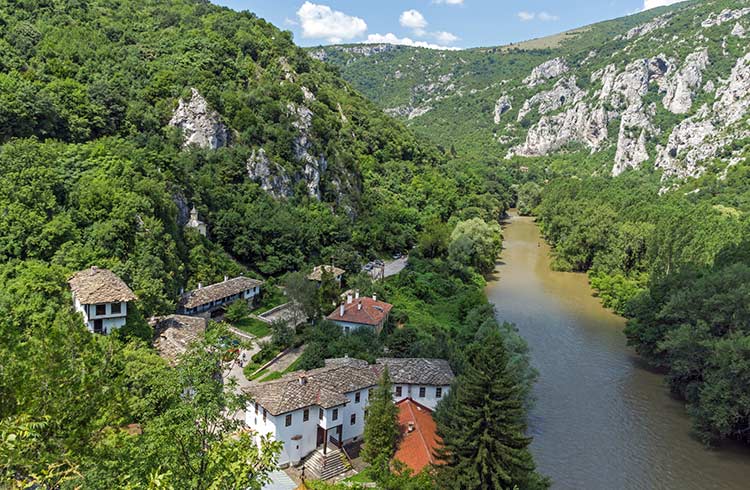 Photo © Getty Images/sjhaytov
Photo © Getty Images/sjhaytov
Bulgaria packs a powerful punch when it comes to natural beauty – from the Pirin Mountains to beaches by the Black Sea.
I was born and raised in Bulgaria, and after several years overseas, I settled back in my home country.
We pride ourselves on the variety of our food, our famous Rosa Damascena (Damask Rose), and the hospitality of our people.
Bulgaria is a very safe country. We avoid military conflicts, crime is low, we don’t actively engage in heated political debates, public protests are rare (but avoid them if they do break out), and religions coexist happily on the whole. The main religion in Bulgaria is Bulgarian Orthodox, but there are also Roman Catholics, Muslims, Protestants and Jews.
Here are the seven safety issues that you should be aware of before you come here:
- Fake exchange rates
- Inflated bills
- Dark back alleys
- Fake taxis
- Stray animals
- LGBTQ+ travel safety tips
- Natural disasters and weather
1. Be aware of fake exchange rates
Bulgaria is still mostly a cash economy. While you can pay with a card in the malls and supermarkets, that’s rarely the case in other places such as markets, street stalls and most restaurants. So, it is a good idea to always have some cash on you.
It’s easy to get cash from ATMs in Bulgaria. It’s not necessary to get local money in advance before arriving, but it might be handy to have some for when you arrive.
However, don’t exchange your foreign currency anywhere but in banks. The Bulgarian currency – the lev (BGN) – has been tied to the euro (EUR) since 1999, and, at the time of writing in January 2020, the official exchange rate is 1.95 BGN for 1 EUR.
Pay attention to this one. Many exchange places, especially at seaside resorts, usually add an extra digit to the rate, exchanging 1 EUR not for 1.95 but for 1.195 BGN. It’s very easy to miss the difference, and I know some locals have fallen for that trick. In fact, I almost did once.
To be on the safe side, always use banks. But have your ID with you, as they’ll ask for it.
2. Inflated bills
Bulgarian food is delicious. To avoid spoiling your fantastic meal experience, always double-check the bill before paying to ensure everything is correct.
Sometimes, you’ll find an extra appetizer or a cocktail (if you’ve hit a bar) you didn’t order. And that’s rarely an honest mistake. Usually, it’s the server trying to make some cash on the side.
Double-check your receipts at the supermarket as well. Some cashiers try to pull off the same scam.
3. The dark back alleys
Unfortunately, many of Bulgaria’s back streets and alleys don’t have adequate lighting at night.
Of course, this doesn’t automatically translate to being mugged or assaulted (which happens very rarely in Bulgaria). But you might step into a puddle or trip over an obstacle in the dark.
To avoid unpleasant experiences, stick to main streets if walking to your destination or get a taxi.
4. Avoid fake taxis
While traveling around Bulgaria, be extra careful with fake taxi companies that charge inflated rates.
There are several well-known companies that operate in each city, especially in Sofia.
The scammers use fake stickers and paint their cars to appear as if they’re a part of the legitimate companies. Often, the only difference is a few letters in the brand name or a single digit in the phone number.
Either use one of the official mobile apps (Yellow, for instance) or ask your hotel receptionist or restaurant staff to call you a cab.
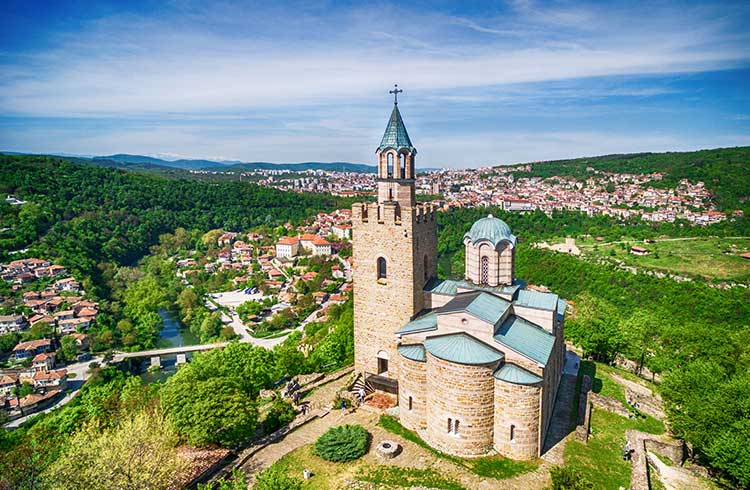
5. Beware of stray animals
Bulgaria has made great strides toward curbing this problem. However, there’s still an alarming number of stray dogs and cats freely roaming the streets. Keep your distance to avoid diseases or getting bitten.
Try to overcome your desire to pet them. The last thing you want from your trip is a spell in hospital for rabies shots. Rabies is not considered a major risk to travelers in Bulgaria, but speak to your travel doctor about your plans in case they recommend a rabies shot before you leave home.
6. LGBTQ+ travel safety
While homosexuality is not illegal in Bulgaria, same-sex marriages don’t yet enjoy legal recognition. Similar to many other countries from Eastern Europe, Bulgaria tends to be socially conservative.
While discrimination against LGBTQ+ community has been illegal since 2004, many locals still have negative reactions to public displays of affection between gay couples. LGBTQ+ travelers might want to consider refraining from showing affection in public.
That said, attitudes are changing, and you can find a few gay bars and clubs in big cities like the capital Sofia, plus Plovdiv, and Varna.
Sofia hosts an annual Gay Pride, but it has faced protests and violence in the past.
7. Natural disasters and weather in Bulgaria
Bulgaria is located in a seismically active zone. Multiple tremors are felt throughout the year, but most of these are minimal. Larger earthquakes have affected the country in the past, such as the 2012 Pernik earthquake, but there’s not much for travelers to worry about.
Beware during the rainy months (May and June) of flash flooding. Stay up to date with the weather and local news if you are traveling during this time.
During summer (June to August) and early autumn (September), wildfires are a threat in Bulgaria. If you are traveling to areas that are heavily forested, make sure you follow advice from local authorities if a fire is spreading.
Try visiting Bulgaria before the busy summer months, or travel to Bulgaria for the snow from December to March. My favorite time to visit is mid-April until the end of May when the temperatures are perfect for hiking, and landscapes are verdant.
Get a travel insurance quote for Bulgaria
You can buy at home or while traveling, and claim online from anywhere in the world. With 150+ adventure activities covered and 24/7 emergency assistance.
Related articles
Simple and flexible travel insurance
You can buy at home or while traveling, and claim online from anywhere in the world. With 150+ adventure activities covered and 24/7 emergency assistance.
Get a quote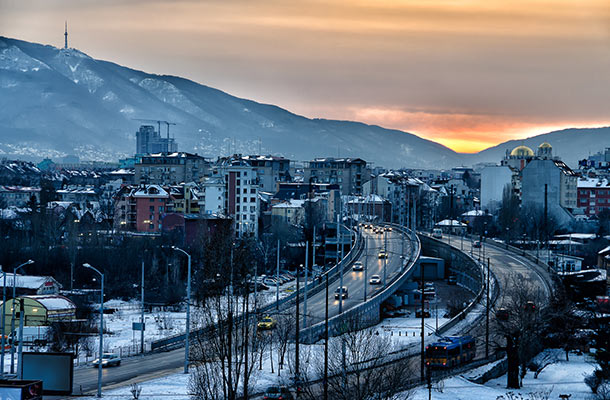
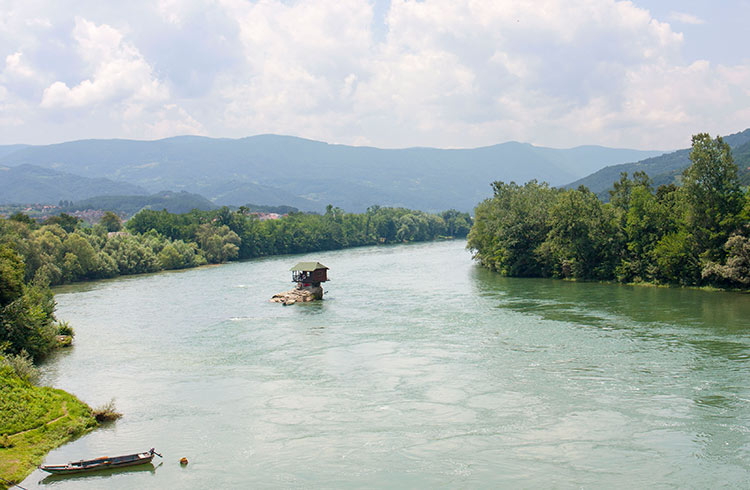
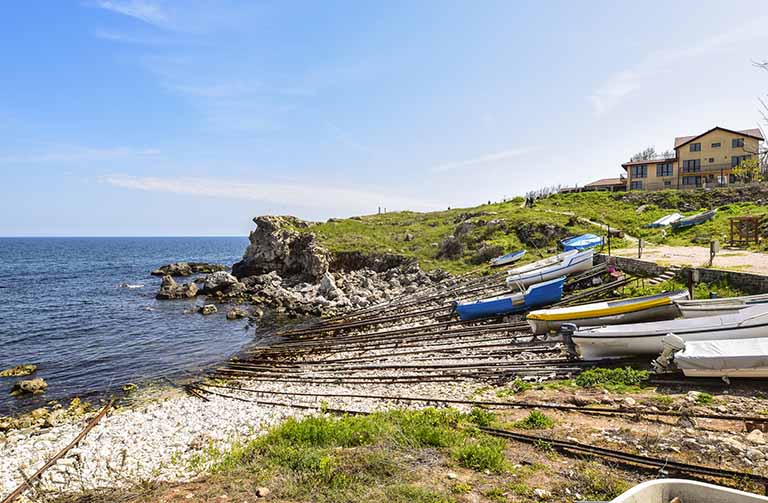
6 Comments
Bulgaria is a fantastic country to visit. Very safe, good roads, nice people. We were there for a few weeks in a rental car and loved it. Can't wait to go back!!
I don't like your comments on the stray animals. Dont take this personally but I can tell you're a bulgarian brought up to hate the poor strays. Thanks to foreigners these poor animals get some love and food. Show some kindness and at least delete this paragraph from your article
Hi everyone, love the comments about Bulgaria. I am English from Liverpool and have been living in Bulgaria for 15 yrs now to me its the best country in Europe very safe and nice people very low crime rate stunning panadanic landscape a great place to visit or retire
How does Bulgaria treat its Roma population?
I loved the country it has great food, Bulgarians are amongst the nicest most hospitable people in Europe.
I can not say anything bad about the country.
Hi.been married to a bgn for 30 years and we live in the uk in winter
But also have a summer home in Pomorie a fantastic town..away from the louts who frequent places like sunny beach..package tourists.
I normally drive over and my wife prefers to fly..or drive over with me and fly back
Both retired but my wife still works as she
always has done..a primary school teacher
I hope we can visit this year..never missed one yet.